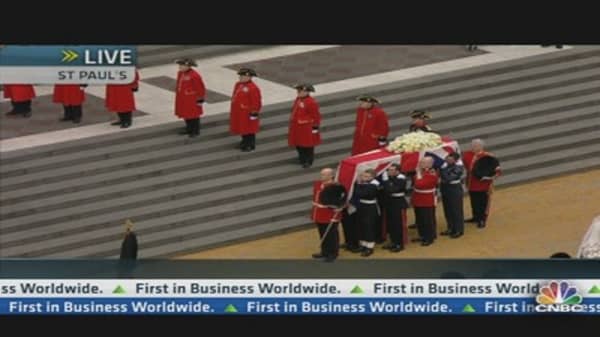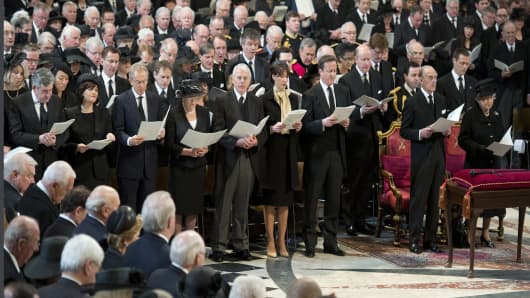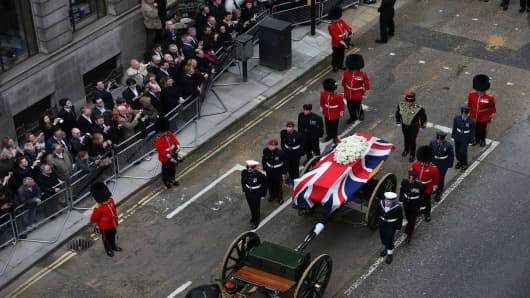London staged its biggest political funeral in almost half a century Wednesday morning as Britain's governing elite joined the Queen and global leaders to bid farewell to former Prime Minister Margaret Thatcher, known as the "Iron Lady."
In an event similar to Winston Churchill's state funeral in 1965, Thatcher's coffin traveled on a horse-drawn gun carriage through the capital's streets, from the Houses of Parliament to the city's most famous cathedral, St. Paul's.
While police feared demonstrations might mar the occasion, the procession passed through the streets peacefully, greeted with either silence or polite applause.
More than 2,300 mourners attended the funeral, including 11 serving prime ministers from around the world, the British government's entire cabinet, two heads of state and 17 foreign ministers.
Thatcher, who headed Britain's government from 1979 to 1990 and led the Conservative Party for 15 years, died on April 8 after suffering a stroke.
Thatcher's granddaughter, Amanda, and Prime Minister David Cameron delivered readings at the service, while the Bishop of London, the Right Reverend Richard Chartres, spoke about her life and religious upbringing in his sermon.
Chartres said that the funeral was not the place to debate Thatcher's divisive legacy: "There is an important place for debating policies ... for assessing the impact of political decisions on the everyday lives of individuals and communities. Parliament held a frank debate last week—but here and today is neither the time nor the place."
Chancellor George Osborne was seen shedding a tear during the hourlong funeral.
Following the service, the former prime minister's coffin was taken to The Royal Hospital Chelsea, once again greeted by applause through the streets of London.





